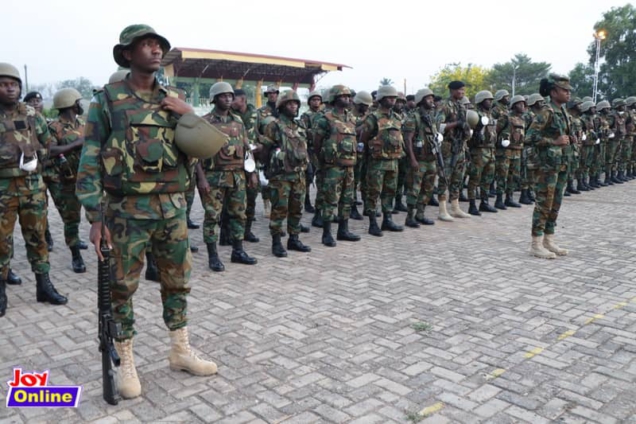It is quite clear by now that a good proportion of Ghanaians appreciate the importance of restricting movement of persons in limiting the further spread of the COVID-19.
Simply put, this is a critical measure needed to among other things minimize horizontal transmission, allow for a more efficient contact tracing and monitoring of persons in quarantine/isolation, allow the health service and government to get ahead of the disease in terms of preparation and also reduce the pressure on limited resources.
Restricting movement (for want of better terminology) is for the government to decide how best it wants to enforce it.
The Ghana Medical Association recommends a total lockdown in an urgent effort to highlight the important role movement of persons plays in the spread of this virus.
This suggestion is made not out of insensitivity to the socioeconomic plight of the ordinary Ghanaian but rather because the GMA trust it is the best way to preserve precious lives.
Instead of wasting time in defining terminologies or deciding who loves the poor and 'vulnerable' more or who has done sociology and who has not, or behaving like Paul Adom Okyere in abusing professional groups, or deciding the group that has done a better socioeconomic impact assessment, it would be more useful to explain what to do in restricting movements.
All ‘non-essential’ services
should be closed and staff instructed to stay home as much as possible.
All 'essential' travels must stop as much as possible.
Only shops selling essential goods such as grocery shops and foodstuff sellers should be allowed to operate while shops selling ‘non-essential’ goods be closed.
Any movement out of one's place of abode or work must be for seeking an 'essential need'.
I am sure every Ghanaian can assess his/her current situation and map out a plan to drastically reduce his/her movement.
An effort to restrict movement now may ensure the virus does not spread to the inner cities and rural areas where containment would be arduous.
It is now for the government as leadership with the capacity to gather relevant data for impact analysis to ultimately decide the extent of restrictions and to identify which services should remain 'essential' considering the exigencies of the time.
No matter what we decide for ourselves as a nation, we need to all understand that the more restricted our movements are, the better for us in limiting the spread of the virus. Let us all take a breath to swallow this very bitter pill of 'restricting movement'.
Let us all do what we can to stop this virus that has the ability to destroy the manpower we have taken many years to build and develop. I am because we are. We are in this together.
Latest Stories
-
Ghanaian youth unaware of their right to hold politicians accountable – Youth Bridge Foundation
52 mins -
Judge delays Trump sentencing for a third time
1 hour -
2024 WAFCON: Ghana drawn against defending champions South Africa in Group C
2 hours -
Photos from DW-JoyNews street debate on ‘galamsey’
2 hours -
Mimmy Yeboah: Blending heritage with global sophistication, confidence redefined through couture
3 hours -
100 Most Influential People Awards 2024: Brain Hill International School’s Director Mary Anane Awuku honoured
3 hours -
Akufo-Addo commissions 97-km Tema-Mpakadan railway line
3 hours -
Majority requests recall of Parliament
3 hours -
Kanzlsperger and Professor Quartey support WAFA with medical Donation
3 hours -
Gideon Boako donates 10 industrial sewing machines to Yamfo Technical Institute
4 hours -
‘Golden Boy’ Abdul Karim Razak honored at WAFU-B general assembly
4 hours -
Buipewura Jinapor secures Vice Presidential position in National House of Chiefs with record votes
4 hours -
2024 election: I want results to come out like ‘milk and honey’ – Toobu
4 hours -
Ghana’s Henry Bukari hands over chairmanship of ECOWAS Brown Card Council of Bureaux
4 hours -
Residents of Dome-Kwabenya on edge ahead of December elections
5 hours

